Written by budding eighteen-year-old English actor and playwright Noël Coward in 1918, The Rat Trap, a four-act drawing-room drama that takes a proto-feminist look at the subordination of women in marriage, wasn’t produced until he was 26, wasn’t revived in London for another 80 years, and is just now making its American debut with Off-Broadway’s Mint Theater Company, dedicated to presenting forgotten plays of the past. Unlike the sparkling comedies of manners and decadent farces for which he would become famous, this precociously insightful work begins as a light romantic comedy with Coward’s signature rapier wit but quickly shifts to a serious exploration of gender-based issues in relationships, the explosive anger that results from sexual inequality, and the psychology of being trapped inside a loveless marriage for a woman’s lack of other options, in what Coward called his “first really serious attempt at psychological conflict.”
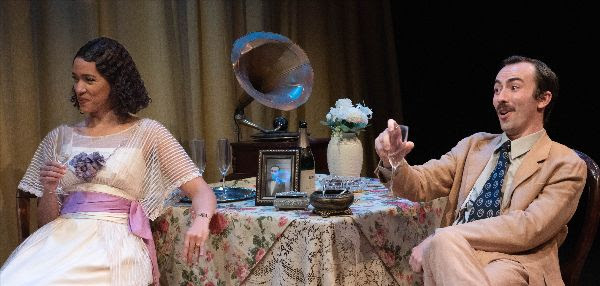
Drawing on his own theatrical background (he made his professional stage debut at the age of eleven), Coward opens the play with a champagne celebration of the impending wedding of two writers – Sheila Brandreth, a talented woman novelist, and her less accomplished fiancé, playwright Keld Maxwell – who giddily laugh and kiss and vow their undying love and devotion to one another. Hosted by Olive Lloyd-Kennedy, whose flat Sheila shares in London, they are soon joined by another couple of creative artists – Naomi Frith-Bassington and Edmund Crowe, two professed bohemians who openly express their passion for one another but have chosen to remain “unfettered by the chains of marriage” in the belief that “love should be free.” Though Olive warns Sheila of the likelihood of competition and conflict in a marriage between two egotists, and the probability of having to subordinate herself to Keld even though she’s the better writer, she goes ahead with the nuptials and soon proves Olive correct; the spouses become “like two rats in a trap, fighting, fighting, fighting.”
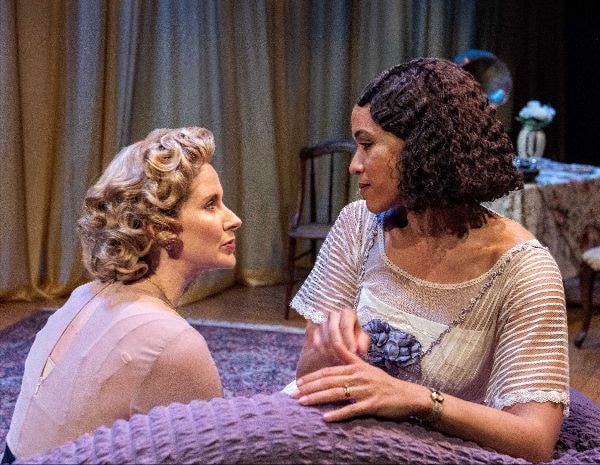
Adding to the trouble, and providing segments of comic relief, are Sheila’s devoted housekeeper Burrage, who interrupts the temperamental Keld while struggling with his writing and annoys him with talk of meals and other mundane household topics; and Ruby Raymond, a giggling, pretentious, ambitious young actress who campaigns to be cast in Keld’s show and will do anything to make that happen. Despite all the growing strain and heated arguments between them, including instances of her angry husband becoming physically abusive, the more controlled and articulate Sheila relinquishes her writing, supports his burgeoning career, and becomes unhappily subservient to him and his ego, until she finds the letters hidden in his desk that make her reevaluate their relationship. But can she go on alone, or will circumstances lead her to return to the man who “killed her heart” and she no longer loves?
Through sophisticated insults, combative dialogue, and acerbic realism, Coward’s loquacious characters debate the value and problems of love and marriage, consider the different types of women and the choices they make, and explore issues of gender politics that remain relevant today, in a time when a woman’s right to choose is under attack in the US and women are still only paid an average of 83 cents for every dollar earned for equal work by men. It’s all delivered by an excellent cast of five women and two men who, under the direction of Alexander Lass, with dialect coaching by Amy Stoller, affect well-honed British accents and slowly grow the tension until the initially clever sparring is no longer funny.
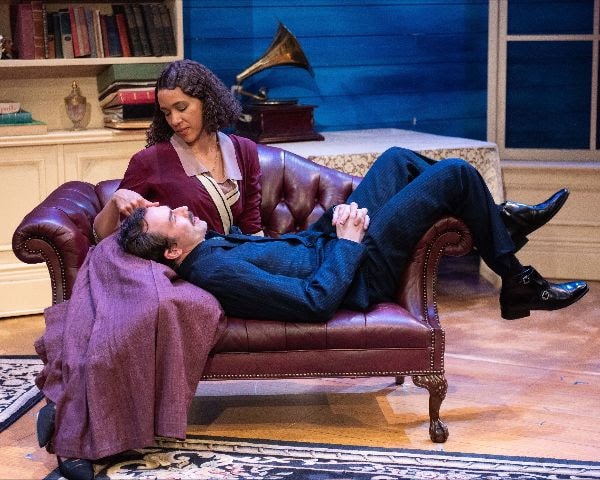
Sarin Monae West stars as Sheila and captures her trying emotional journey to mature self-awareness, from the delighted laughter and excitement of young romance to the realization of who her husband really is, what she’s given up in order to appease him, and the unexpected complication that underscores the difficulty of forging ahead as a woman on her own. Her refined speech and well-spoken arguments bespeak her character’s erudition, and her body language, facial expressions, and vocal tone reveal the unhappiness she tries to conceal, until she makes her devastating discovery and she no longer can. James Evans as Keld is a volatile bundle of stress, rage, and ego, who doesn’t appreciate all that Sheila has willingly done for him and his flourishing career until she no longer does, and he nervously tries to make amends.
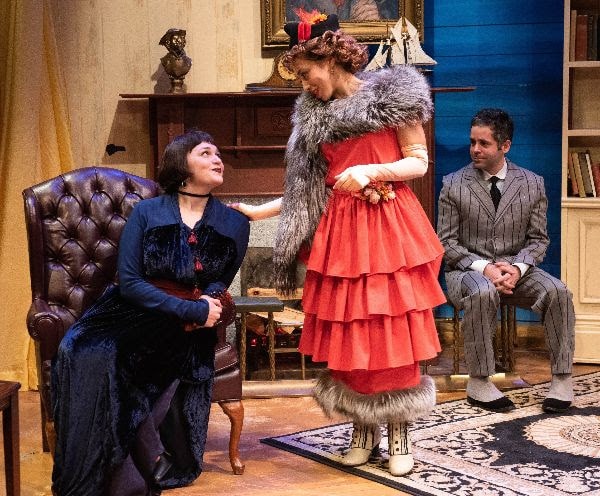
As the insightfully wise Olive, Elisabeth Gray brings composure and seriousness to the subject, offering knowing but unheeded advice to her friend and flat mate, then stepping in to give Keld a chance to try to win back Sheila when their marriage goes even worse than she predicted. In her risible portrayal of the annoyingly pushy and ambitious actress Ruby Raymond, Claire Saunders is laughably grandiose and conspicuously self-promoting, on her egomaniacal mission to become a star at anyone else’s expense. Heloise Lowenthal and Ramzi Khalaf provide more laughs as the liberated couple Naomi Firth-Bassington and Edmund Crowe, whose verbally and physically expressed attraction and affection for each other and the arts is hilariously histrionic and suggestive of a vaudevillian music hall entertainment, as is the lively musical duet they perform. And in the role of Burridge, the outstanding Cynthia Mace embodies a perfectly balanced combination of dedicated service and support for Sheila and deliberate vexation and dislike of Keld; she is at once properly dutiful and slyly mischievous in her masterfully well-tempered comedic performance.
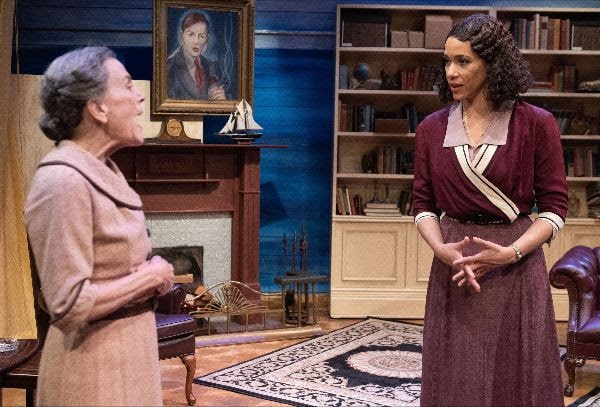
The show’s artistic design, as is always the case with Mint’s productions of classic works and playwrights, evokes the era and class of the embattled characters. The set by Vicki R. Davis is tastefully furnished in period style, and props by Samantha Shoffner include a vintage manual typewriter, saucer champagne glasses, and a gramophone. Spot-on costumes by Hunter Kaczorowski and wigs by Tommy Kurzman are indicative of the time, personalities, and positions, and sound by Bill Toles and lighting by Christian DeAngelis reflect the changing moods and locales.
While the contentious dialogues can get talky, the play’s relevant content, the writer’s prescient skill, the director’s animated blocking, the touches of biting humor, and the cast’s excellent delivery make the American premiere of The Rat Trap engaging, provocative, and well worth seeing.
Running Time: Approximately two hours and 10 minutes, including an intermission.
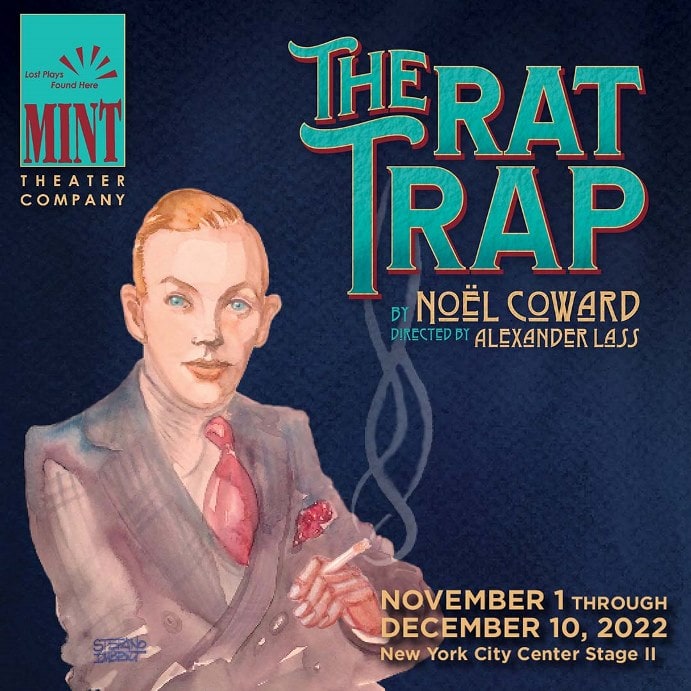
The Rat Trap plays through Saturday, December 10, 2022, at Mint Theater Company, performing at New York City Center, Stage II, 131 West 55th Street, NYC. For tickets (priced at $45-75, including fees), go online. Masks are required inside the theater.




